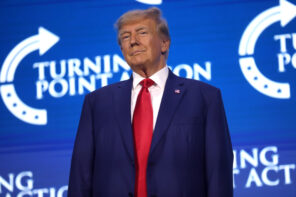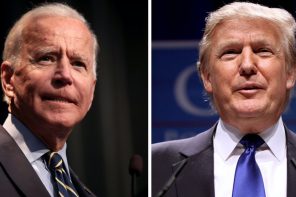Recently, President Trump, on advice from the Committee on Foreign Investment in the United States (CFIUS), has forced ByteDance—the Chinese owner of popular social media app Tik Tok—to sell the app to a U.S.-based company or face a ban. This move, while controversial and poorly executed by President Trump, is the right one. The new frontier of espionage and intelligence gathering is social media. This new hydra that is social media—where when one head is cut off two more take its place—poses a unique challenge to policymakers, as it remains vital to maintain a free and open internet while balancing national security concerns.
The Chinese Communist Party (CCP) was early to recognize the vast potential of the internet not only for commerce, but also domestic surveillance and social engineering. As early as 2002, the CCP was erecting internet barriers, including blocking the American search engine Google. They have rapidly adopted high-tech initiatives for domestic control, such as the recently introduced social credit system, which allows state officials to rapidly track down individuals and restrict movement. Such systems have been used to extreme effect in the Xinjiang Uighur Autonomous Region. Consequently, the CCP has also been under international pressure over their immense theft of intellectual property.
The modus operandi of Communist Party intelligence efforts has been mass data collection.
Concern over CCP spying has not just spread through the United States, but also Australia, Germany, the United Kingdom, and of course, Canada. The recent diplomatic row between Canada and the Communist Party over the arrest and potential extradition of state-backed Huawei’s Meng Wanzhou on espionage charges has exacerbated national security concerns within Canada over Huawei’s involvement with 5G infrastructure. Canadian leadership has notably rejected any ban of TikTok, arguing that the burden is on individuals to ensure safe cybersecurity practices. While the U.S. Department of Defense has advised servicemembers to delete TikTok from their smartphones, the Canadian Department of National Defence has no policy restricting Canadian Armed Forces members from accessing any social media while on-base.
The modus operandi of Communist Party intelligence efforts has been mass data collection. Social media is rife with privacy concerns and presents an excellent aggregation tool for intelligence gathering. TikTok’s contravention of internal corporate privacy regulations as well as legal regulations has demonstrated a security risk, and its parent company’s headquartering has compromised it to potential intelligence collection efforts. Noticeably, CCP intelligence efforts have strayed past the traditional role of intelligence gathering in areas of political and military intelligence and into the business domain. There have been numerous instances of state officials engaging in corporate espionage to aid Chinese firms.
TikTok goes far beyond the data collection practices of social media like Facebook…
While it is true that American companies like Facebook and Apple represent similar risks for data collection, the fact that they cannot be strong-armed into surrendering information on American and Canadian nationals offers them some protection from scrutiny. The Cambridge Analytica revelation certainly warrants a thorough examination and discussion of social media privacy overall, yet it seems clear that TikTok presents a unique problem. TikTok goes far beyond the data collection practices of social media like Facebook, even collecting users’ clipboard content, which often carries sensitive passwords on Apple devices. Furthermore, TikTok is reported to police content, which is perceived as unfavorable to the CCP.
A forced sale or outright ban of TikTok is not picking winners and losers in a competitive market, although President Trump’s comments do not help that perception. Rather, it is a legitimate action to protect Americans’ privacy and U.S. national security interests. The Committee on Foreign Investment in the United States (CFIUS) has acted similarly when confronted with similar national security concerns, like that of Kunlun’s acquisition of Grindr, or even in the case of the Obama administration blocking the sale of a wind farm.
Noticeably for American policymakers, there is no American equivalent to TikTok for China to ban. The CCP has already completely cut off the Chinese market from American and Canadian firms. Those firms which seek entry to the Chinese domestic market are forced to surrender IP and network access to Communist Party officials. That leaves risk of retaliation small, as there are no soft targets for the Communist Party to pursue, and it is unlikely that they would agree to abide by World Trade Organization rulings or stop forced network entries of U.S. databases (like that of the Office of Personnel Management in 2016).
International businesses will continue to be welcomed in the United States, so long as they do not present clear intelligence risks as demonstrated by TikTok and ByteDance’s behavior.
There has been opposition to the forced sale of TikTok over reasonable concerns that it is xenophobic in nature or jingoistically motivated. While the President’s leadership is questionable, this is one case in which there is bipartisan agreement on the threat posed by CCP intelligence collection and the potential for social media vulnerability. The claim that this act will cause a slippery slope towards an American “Great Firewall” seems unfounded. International businesses will continue to be welcomed in the United States, so long as they do not present clear intelligence risks as demonstrated by TikTok and ByteDance’s behavior. Spotify, for instance, is a Swedish-owned company which has dominated the American music streaming market. Alibaba, the China-based $700B market-cap competitor to Amazon, recently opened its business-to-business shop to U.S. customers.
While the hydra presented by social media cannot be slain, it can be tamed. Allowing TikTok and other compromised businesses to continue their data collection presents a clear danger to American and Canadian national security, not to mention privacy. The forced sale may seem anti-competitive, but it does not threaten legitimate international business from China or elsewhere, nor does it establish new precedent. There’s a saying that a broken clock is right twice a day; in this case, the President and the CFIUS are taking the correct course of action.








